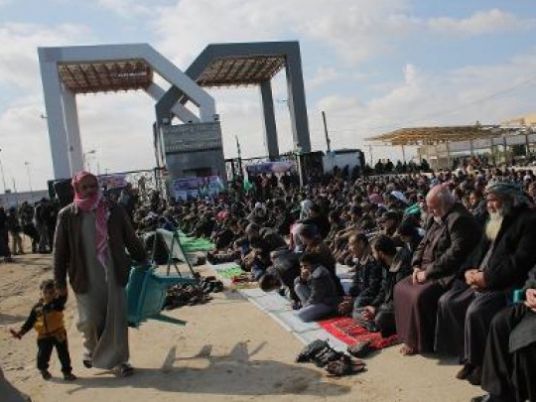
European Union foreign ministers Saturday rejected all recourse to a military solution in Syria while reiterating that President Bashar al-Assad must unilaterally call a halt to the killing.
"Syria is not Libya," French Foreign Minister Alain Juppe said at the close of a two-day informal meeting of the bloc's foreign policy chiefs, referring to last year's NATO-led air campaign in Libya.
"What concerns us most is the risk of a civil war between Syria's communities and it will be the heavy responsibility of the Syrian regime if this threat of civil war is confirmed."
As Qatar called in Cairo for the dispatch of Arab and international peacekeeping troops to Syria, Juppe joined his counterparts in saying that for the EU "military action is not on the agenda."
Denmark's Villy Sondval, who chaired the meeting, said there had been no talk of boots on the ground while EU foreign policy chief Catherine Ashton insisted, "The road we take is a political solution."
Flying in for the talks the previous day, German's Guido Westerwelle had warned against the temptation of sparking "a large-scale fire" that would have "really disastrous consequences for the region, the people, and the world."
"We must be patient," said Luxembourg's Jean Asselborn. "We will unfortunately have to accept to see enormously more victims, but military intervention would be worse."
"It wouldn't be thousands but tens of thousands of dead."
Saying the EU would continue to consider slapping extra sanctions on the regime, Ashton said top of the agenda now for the bloc was to secure support from Russia and China on a draft UN Security Council resolution to be discussed in New York on Monday.
Their backing "would move us forward on Syria and recognize what we recognized a long time ago in the EU, which is (that) you cannot remain a leader and commit mass murder against your people," she said.
Echoing a continued refusal in EU capitals to officially recognize the Syrian National Council as the sole rebel group, Ashton urged Syria's opposition to unite.
"One of the most important things is for the opposition groups to come together," Ashton told reporters.
"The opposition must federate, unite and strengthen," said Juppe.
The French minister implicitly slammed Russia's stance on the draft UN resolution on Syria, saying there were no grounds to demand a simultaneous halt to violence from the regime and from the rebels.
"Currently any possibility of reaching an agreement over a Security Council accord is blocked," said Juppe, who will be in New York on Monday to discuss it.
"We will not accept that the regime and those fighting against the repression of the regime be considered back-to-back," he said. "It's up to the regime to take the initiative, to stop the repression."
The resolution aims to clinch a humanitarian ceasefire and access for humanitarian aid in the areas most threatened by violence which the opposition says has already claimed 8,500 lives.
Russia and its diplomatic ally China infuriated the West by vetoing in February a UN Security Council resolution condemning the Assad regime for the bloodshed in Syria and has shown little sign of shifting its policy since.
"It is scandalous to consider on the same level citizens who are trying to defend themselves and a regime that is fighting them, that orders snipers to shoot at women and children to create a climate of terror," Juppe added.
Moscow is under pressure from the West and Arab states to pressure Assad's regime and support sanctions over the bloody crackdown.
Shortly after Juppe spoke, Russian Foreign Minister Sergei Lavrov told reporters after a meeting at the Arab League headquarters in Cairo that he and his Arab counterparts want "an end to the violence whatever its source."




